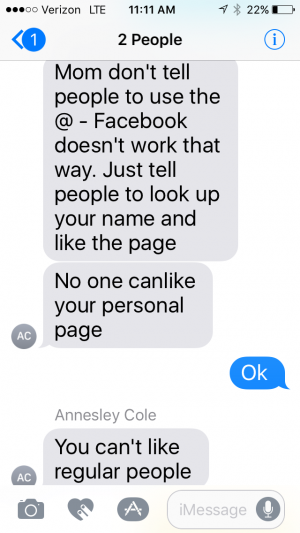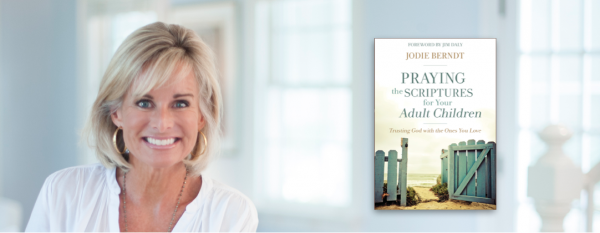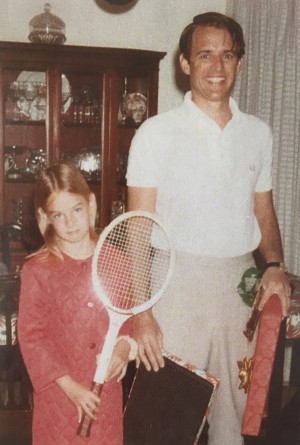Struggling with worry or fear?
Yeah, me too.
And I’m one of those people who can quote verses like 2 Timothy 1:7 and Romans 8:6 in her sleep. I know God didn’t give us a spirit of fear. I know that the spirit-controlled mind is one marked by peace. I know all of that–and I want to live like I believe it.
The thing is, though, the ongoing uncertainty and “what ifs” of a global pandemic can wear anyone down. Even if you’re not actively thinking about COVID, it’s there, like the low hum of the refrigerator, white-noising its way into our lives.
I’m not sure who has it the worst. I know loads of young parents working from home while schools and daycares are closed. I have older friends who spend their days caring for (and trying to protect) aging parents. And I’ve heard from more than a few tech-challenged colleagues who’ve blown it in some way on Zoom (although none so spectacularly as the lawyer who felt compelled to explain that he was not a cat).
We all have our struggles. But as my publishing team prepares to release the updated version of Praying the Scriptures for Your Teens on Tuesday, I can’t help but sympathize with the adolescents I know. Social connection is the lifeblood of a teenager’s existence, and things like remote learning, social distancing, and the long, lonely days of enforced quarantines add an extra layer of angst to their already hormone-packed lives. Throw in the stoppage of sports, the postponement of proms, and the cancellation of any number of other rites of passage in an adolescent’s life, and it’s easy to understand why our kids might have a hard time coping right now.

A pimple is one thing; a pandemic can take teenage anxiety to a whole new level.
(Adult anxiety too. And even as my heart aches for teenagers, I realize that it’s also hard on their parents.)
Helping teens find freedom from worry and fear
So what do we do? Is there a way to live without worry? Can we help our teenagers find freedom from fear?
God certainly thinks so. If you take him at his word (and I do), worry has no place in our lives.“Do not worry about anything,” he tells us in Philippians 4:6. That was the most searched and shared Bible verse in 2019–followed in 2020 by its close cousin, “Do not fear.”
We know, almost instinctively, that nothing good comes from worry and fear. These emotions are never productive. Nobody wants apprehension or anxiety to color their life. And nobody wants that for their kids.
But is obeying a command like “Do not worry” even possible–whether we’re talking about ourselves or our teens?

No.
Not in our own strength, anyway.
We’re too frail. I have one friend who says she refuses to give in to worry (“Take every thought captive!” is her rallying cry), but even she would admit to slipping, sometimes.
That’s the bad news: we are weak. The good news—the great news, actually—is that God never gives us a command that he doesn’t also give us the power to fulfill. We might not stand a chance against worry and fear on our own, but we can tap into the supernatural power that makes victory possible through Scripture and the Spirit.
Moving from panic to peace
God’s Word renews our minds, transforms how we think, and informs our perspective. God’s Spirit reaches into our souls, reminding us of what we know to be true and interceding with us—interceding for us—in ways that words cannot describe. And when these two forces—the Scripture and the Spirit—come together to animate our thoughts and give shape to our prayers, panic gives way to peace.

The very act of approaching the Lord—of saying, “Dear God, I need help”—opens the door to connection with him, ushering us into his presence and producing a sense of security that is more easily experienced than explained.
It’s a peace, Scripture says, that “transcends all understanding.” Or, as The Message version puts it…
“Don’t fret or worry. Instead of worrying, pray. Let petitions and praises shape your worries into prayers, letting God know your concerns. Before you know it, a sense of God’s wholeness, everything coming together for good, will come and settle you down. It’s wonderful what happens when Christ displaces worry at the center of your life.”
Isn’t that lovely? A sense of God’s wholeness, everything coming together for good, will come and settle you down.

It’s in that act of settling, as our thoughts and emotions center on Christ instead of our cares, that we can bring our teens and their needs before God.
We can pray for their friendships, asking God to surround them with friends who will encourage each other daily. (Hebrews 3:13)
We can pray for their sense of identity, asking God to help them realize that they are fearfully and wonderfully made, and that they are marvelous in his eyes. (Psalm 139:14)
And we can do battle with the unseen forces that prey on their hearts and their minds, turning that “best of 2019” verse into our personal prayer: “Don’t let ______ be anxious about anything. Instead, prompt them to pray, with thanksgiving, and let your peace guard their hearts and minds.” (Philippians 4:6-7)

These are just three of the prayer prompts you’ll find in this new collection of prayer cards designed especially for teens. They’re called “Dashboard Prayers” cuz they are tiny and perfect to keep in your car—or to give to your kids to let them know you are praying the next time they ask to borrow the keys!

The Dashboard Prayers are available as a free printable (and a thank you!) to my email subscribers; click here to download. And if you know someone who’d like to get these little blogs delivered to their in-box every few weeks, please encourage them to subscribe.
Anyone, though, can get a copy of the updated book. 😉 Click here to get yours!

P.S. When I wrote the original Praying the Scriptures for Your Teens in 2007, “technology use” was pretty much confined to a new thing called MySpace. Back then, parents who were concerned about their teens’ drug use were talking about pot. Not fentanyl. Not prescription meds. Not the devastating pain of opioid addiction. And things like a kid’s sense of identity (“Who am I? Am I loved? Does my life have meaning or worth?”) barely registered on our collective parental radar.
Needless to say, the book needed updating. And as I worked on this new edition, it struck me again: Times change, but God doesn’t. He is the same yesterday, today, and forever. And his word does not return empty but always accomplishes what he desires.
❤️


















